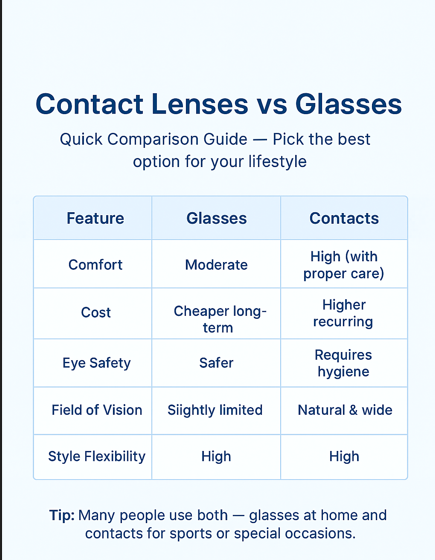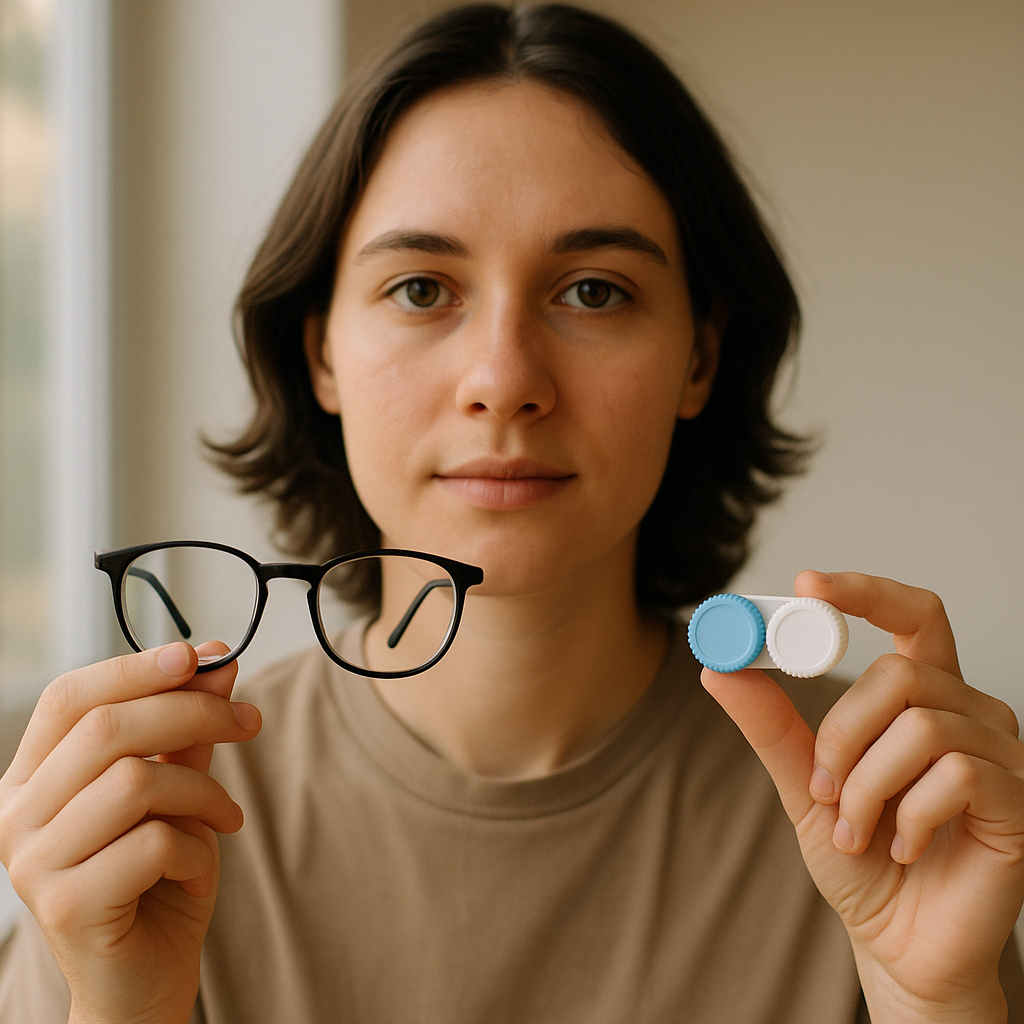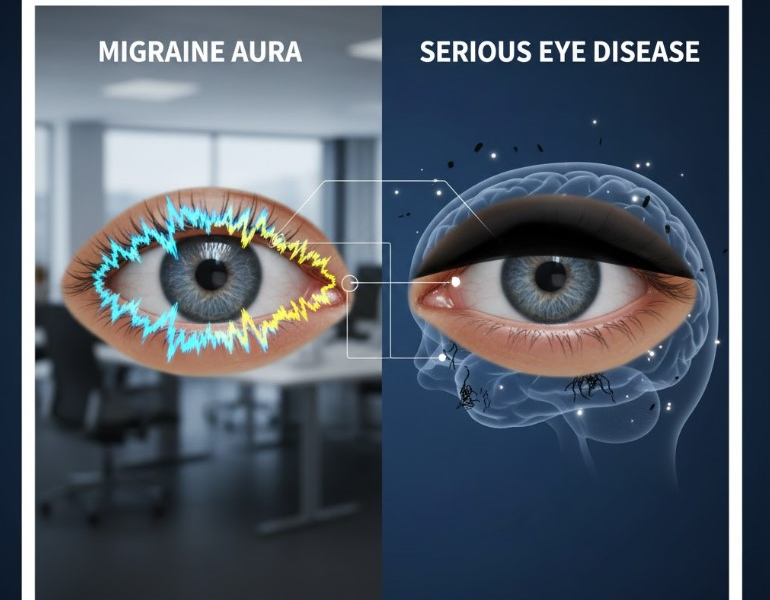Introduction
Introduction
Contact Lenses vs Glasses — it’s one of the most common debates in vision care. Both options can correct refractive errors such as nearsightedness, farsightedness, and astigmatism. But which one is right for you?
Choosing depends on lifestyle, comfort, health needs, and even fashion. This guide breaks down everything — from pros and cons to cost, safety, and expert recommendations — so you can make an informed choice.
Whether you’re looking for convenience, fashion, or maximum eye protection, this guide breaks down everything you need to know.
🕶️ Pros of Glasses
- Simple to use and maintain.
- Long-lasting and cost-effective.
- Provide physical protection from dust, wind, and UV light (with proper coating).
- Available in countless fashion styles and frames.
- Can reduce digital eye strain when using blue light–filter lenses.
❌ Cons of Glasses
- Can fog up or get smudged.
- May not be comfortable for sports.
- Peripheral vision can feel limited.
- Pressure on nose and ears with extended wear.
👁️ Pros of Contact Lenses
- Natural field of vision.
- Great for sports and physical activities.
- No reflection or glare.
- Compatible with sunglasses.
Did you know?
Over 80% of vision problems worldwide are preventable or treatable if caught early — regular eye exams and lifestyle changes can dramatically reduce your risk.
❌ Cons of Contact Lenses
- Require strict hygiene routines.
- More expensive over time.
- Not suitable for everyone (especially with certain eye conditions like glaucoma).
🧑🤝🧑 Lifestyle Considerations
- Active lifestyle? Contacts are better.
- Office worker with screens all day? Glasses with blue-light filter may be best.
- Fashion-conscious? Both can fit your style – glasses as an accessory, or contacts with designer sunglasses.
| Lifestyle Type | Best Option | Why |
|---|---|---|
| Active / Sports | Contacts | Stay in place and provide full vision field. |
| Office Worker | Glasses | Reduce digital eye strain and are easy to clean. |
| Fashion-Oriented | Either | Glasses as accessories, contacts for flexibility. |
| Sensitive Eyes | Glasses | No risk of infection or dryness. |
💰 Cost Comparison
- Glasses: Higher upfront, cheaper long term.
- Contacts: Lower upfront, but recurring monthly cost.
- Combination approach: Many people own both (glasses for home, contacts for outside).
🔎 Related Reading
-
Digital Eye Strain: Causes, Symptoms, and Solutions
How screen time affects your vision and practical prevention tips.
-
Nutrition for Healthy Eyes: 7 Foods to Improve Vision
Eat for eye protection — lutein, zeaxanthin and omega-3 foods.
-
Preventing Vision Loss: Comprehensive Guide
Long-term strategies to preserve eyesight and early detection steps.
- Explore more articles →
🩺 Health & Safety Considerations
- Glasses: Lower health risks.
- Contacts: Require care – never sleep with them unless medically approved.
- Annual check-ups with an eye doctor are crucial to avoid long-term complications.
✅ Which Is Best for You?
There’s no single answer. Glasses are better for convenience and long-term eye health. Contacts are better for lifestyle freedom and natural vision.
📌 Many people use both, depending on the situation.

🙋 FAQs
Q1: Are contact lenses safer than glasses?
👉 No. Glasses are generally safer because they don’t touch your eyes.
Q2: Can I sleep with contact lenses?
👉 Not recommended unless you have extended-wear lenses prescribed by a doctor.
Q4: Which is cheaper in the long run?
👉 Glasses. Contacts are recurring expenses.
👓 Additional Insight: Eye Care Tips for Long-Term Vision Health
No matter which option you choose — glasses or contact lenses — maintaining proper eye hygiene and routine checkups is essential. Clean your lenses regularly, replace contact solutions as recommended, and avoid using expired or non-prescribed products. Adjust your screen brightness, take frequent breaks following the 20-20-20 rule, and wear UV-protective eyewear outdoors. A balanced diet rich in vitamins A, C, and omega-3 fatty acids can further support healthy vision. Remember, clear eyesight depends not only on what you wear but also on how you care for your eyes daily. Consistent habits make the biggest difference over time.
✨ Key Takeaway
Both contact lenses and glasses can give you clear vision — but lifestyle and comfort decide the winner.
If you want low-maintenance and safe eye care, go with glasses.
If you’re active, confident in hygiene, and love freedom, contacts may be your best bet.
Either way, prioritize eye health, cleanliness, and regular eye exams — your vision deserves it.



